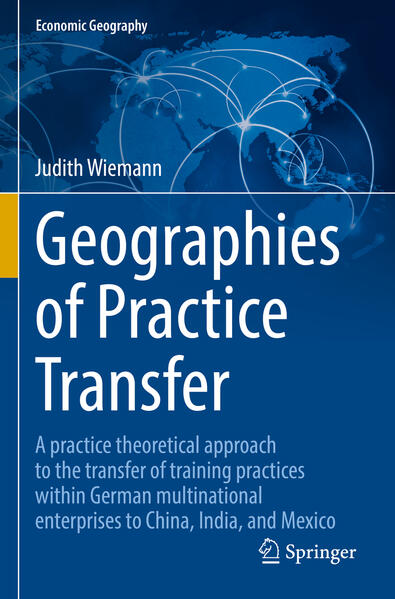
Zustellung: Fr, 03.01. - Di, 07.01.25
Versand in 6 Tagen
VersandkostenfreiBestellen & in Filiale abholen:
Employing a practice theoretical approach, this study centers on how German multinational enterprises transfer three selected production-related training practices to their subsidiaries in emerging economies: onboarding of new employees, shop floor inducting of machine operators, and German-style dual apprenticeship training for specialized technicians. Empirical findings are drawn from three research regions: Greater Shanghai Area (China), Metropolitan Areas Mumbai-Pune-Bangalore (India), and Central Mexico (Mexico).In doing so, this study contributes to debates about the internationalization of multinational enterprises conceptualizing internationalization through the lens of practice transfer. Practice transfer is still an understudied phenomenon in economic geography while international business studies have a long-standing research interest in this area. This study provides a bridge between these two disciplinary fields connecting debates in economic geography on proximity/distance and knowledge transfer with organization studies-based research in international business studies - all the while providing a unique new perspective by developing a practice theoretical approach to explain practice transfer across distance and between territories.
Inhaltsverzeichnis
Chapter 1. Introducing relevance, research questions, and structure of this study.- Chapter 2. Defining the research desiderates: Economic geography, practice theories, and practice.- Chapter 3. Discussing the methodological approach.- Chapter 4. Developing a practice theoretical approach to practice transfer across distance and between territories.- Chapter 5. Comparing transfer resistances of three skill formation practices to the Chinese, Indian, and Mexican research region.- Chapter 6. Threading everything together: conclusion.
Produktdetails
Erscheinungsdatum
15. April 2023
Sprache
englisch
Auflage
1st ed. 2022
Seitenanzahl
284
Reihe
Economic Geography
Autor/Autorin
Judith Wiemann
Verlag/Hersteller
Produktart
kartoniert
Abbildungen
XVII, 263 p. 49 illus., 19 illus. in color.
Gewicht
486 g
Größe (L/B/H)
235/155/15 mm
Sonstiges
Paperback
ISBN
9783030951870
Entdecken Sie mehr
Bewertungen
0 Bewertungen
Es wurden noch keine Bewertungen abgegeben. Schreiben Sie die erste Bewertung zu "Geographies of Practice Transfer" und helfen Sie damit anderen bei der Kaufentscheidung.









